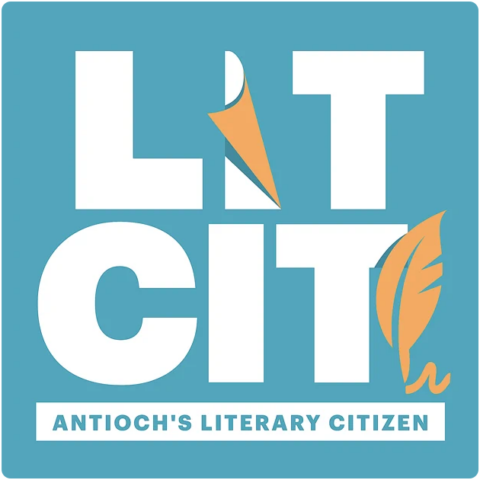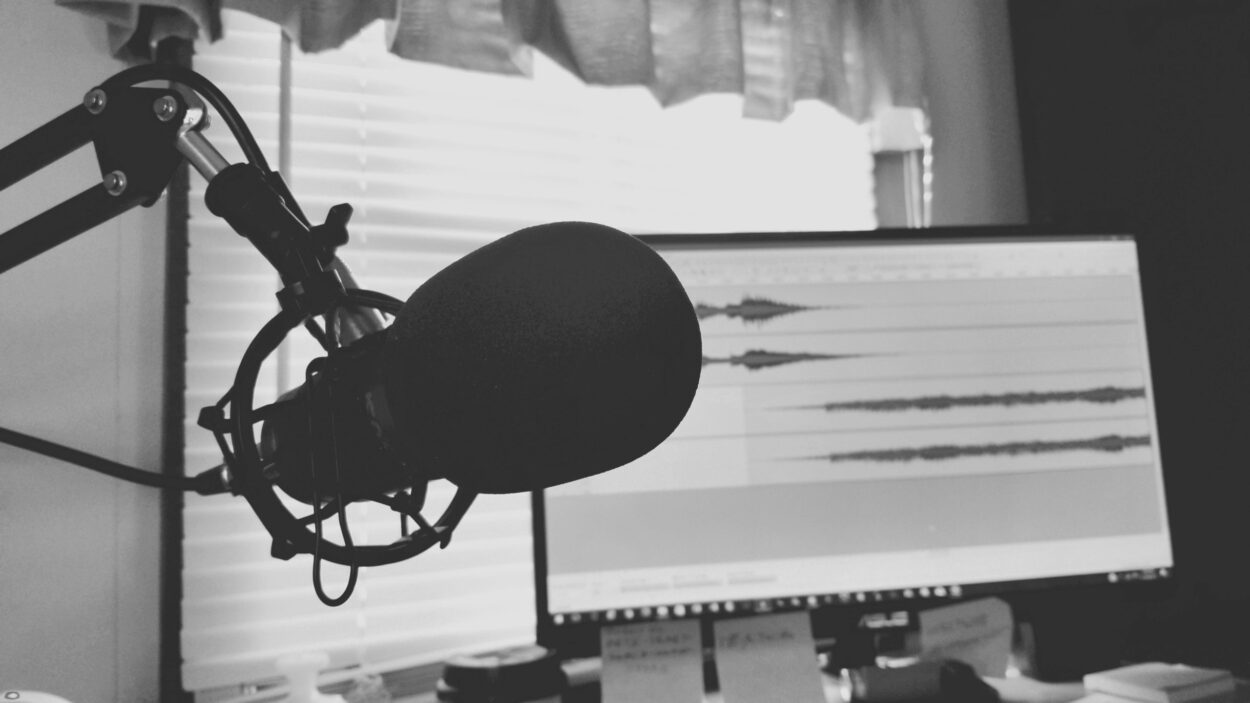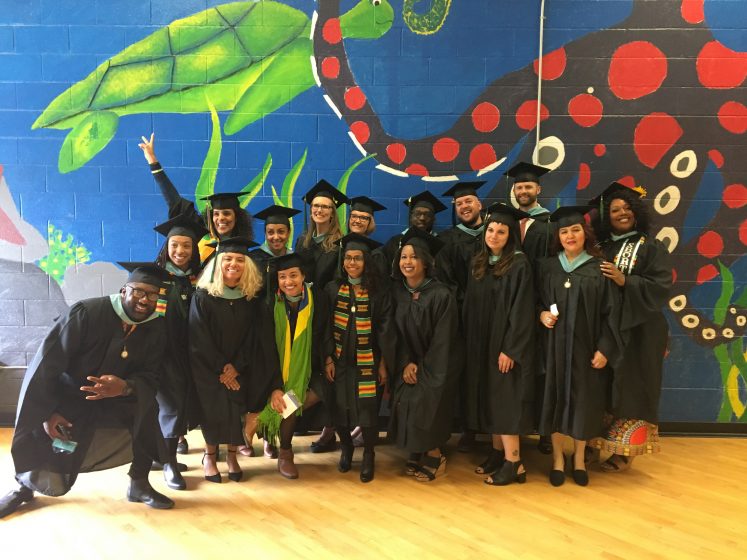“It’s not just going to be a podcast about book authors,” says Victoria Chang, the poet and chair of the MFA in Creative Writing program at Antioch University Los Angeles, describing the program’s new project. “It’s going to be so much more,” she says. At the project’s center will be the question: “How do authors and writers live in the world and make change in the world?”
The LitCit Podcast—named after the idea that writers should be good “literary citizens”—launched at the end of 2020 and already has released four episodes. Each episode is comprised of an in-depth interview with an important thinker from the literary world. Early episodes include conversations with a novelist and a poet but also with the publicist for a literary press. In each interview, the episode’s host draws out the guest not just on their writing but on the connections between writing and community and social justice work.
“The idea was really to open beyond just what you write,” says Amy Mills Klipstine, an MFA student who is acting as the podcast’s editor and producer. The content of the interviews will explore this idea, and the way the show is produced will go some way to proving it. Students in the program are being invited to participate in making the podcast as part of their studies—an opportunity to learn all aspects of running a podcast from producing to interviewing guests. Mills Klipstine hopes that LitCit will succeed in “letting people see that there’s a whole world out there available to you that’s beyond what you write—being a part of this greater community.”
A Project in Line With the MFA’s Mission
The MFA program has long centered social justice and community engagement alongside the development of literary excellence. In order to graduate, students have to demonstrate not just writing proficiency but also “Knowledge of ethical dilemmas and social values of the literary arts” and a “Commitment to a broad range of issues and activities associated with a literary writer and the communities in which the writer lives and works.” This emphasis on social justice and wide-ranging literary activism finds expression in the lectures and seminars given at the MFA’s biannual residencies. From a required “Arts, Culture & Society” class to offerings that recently have included “How Black Horror Unpacks Black Trauma” and “I Scream, Therefore I Exist: Writing and Social Resistance,” the MFA encourages its students to consider the wider picture.
 “I always look at our schedule and think, what a great program we have,” says Chang, “and what a shame that it’s restricted to the people who can pay.” The LitCit podcast will give an opportunity to share some of this wealth—generosity that is well in line with the program’s philosophy.
“I always look at our schedule and think, what a great program we have,” says Chang, “and what a shame that it’s restricted to the people who can pay.” The LitCit podcast will give an opportunity to share some of this wealth—generosity that is well in line with the program’s philosophy.
And if it raises the program’s profile, all the better, says Chang. “If there’s some way that we can get some of the learning that happens here out into the world and share the content for free, we’re increasing the prominence of the program—but we’re really just showcasing the inherent awesomeness of this program already.”
Early Episodes Show the Podcast’s Scope
The first episode of the podcast features an interview between Chang and the poet Dana Levin. Chang is friends with Levin, and she draws on this friendship to guide their conversation about how Levin teaches writing, about the importance for her of having trusted “first readers” who don’t necessarily share her aesthetic, the function of poems in the era of social media, and Levin’s relationship with her own teachers, such as 2020 Nobel-winner Louise Glück.
Chang prizes her friendship with Levin in part because of the rich pieces of wisdom that Levin often shares with her. So as she prepared for the interview, “I just thought, ‘Can I get a couple of those Dana nuggets to come out? Can I just get a few so that other people can experience that—what it feels like to be lucky enough to have Dana Levin as a friend?’”
The second LitCit episode features a different host. In it, the prose writer Lisa Locascio—who as MFA Core Faculty works with Chang in running the program—interviews the novelist Garth Greenwell. Says Locascio, “Garth is a writer who I’ve admired for a really long time, both because of the power and intensity of his prose and also the fearlessness with which he pursues his writing.” But she had never had the chance to meet or interview him.
Locascio says, “He was extraordinary to talk to. He speaks in these perfect, complete paragraphs. And he has such insightful and generous things to say about the writing process.” Their conversation is rich with wisdom about writing but also about teaching, illness, literary fame, and a frank conversation about the politics of portraying sexuality in writing, in which Greenwell speaks with great candor about his own difficult experiences growing up as a queer young person in rural Kentucky.
The third and fourth episodes feature a two-part interview with the Director of Publicity at Copper Canyon Press, Laura Buccieri. Chang again fills hosting duties, picking Buccieri’s brain about the work of promoting literary writing, how she found this career as a publicist out of her MFA, and the difficulty of getting reviewers to pay attention to a book.
Healthy Ambitions for the Podcast
These interviews’ breadth of subject matter and positionality is by design, say Chang, Mills Klipstine, and Locascio. For upcoming episodes they are planning a wide variety of both guests and hosts. They are especially excited about future episodes that will be hosted by the MFA’s students and alumni. Upcoming episodes that are already in the works include interviews hosted by current MFA students Barbara Platts, Samantha Rahmani, and Antoinette Wiley as well as one hosted by an alum, Lisa Croce.
Part of the intention behind the show is that some current students will choose to become deeply involved in the show as their method of fulfilling the MFA program’s graduation requirement of a Field Study, which asks students to put their knowledge and skills as writers to work in service of something they personally value in their communities.
Chang thinks that the experience of doing para-literary work opens a key avenue of engagement and growth for emerging and established writers alike. “I believe that that work is actually more gratifying, sometimes, than your own writing,” she says. “Being able to talk deeply with someone, interview them, or write a review. To think through and talk about someone else’s work and what their work means to me but also to the world. And share it.”




